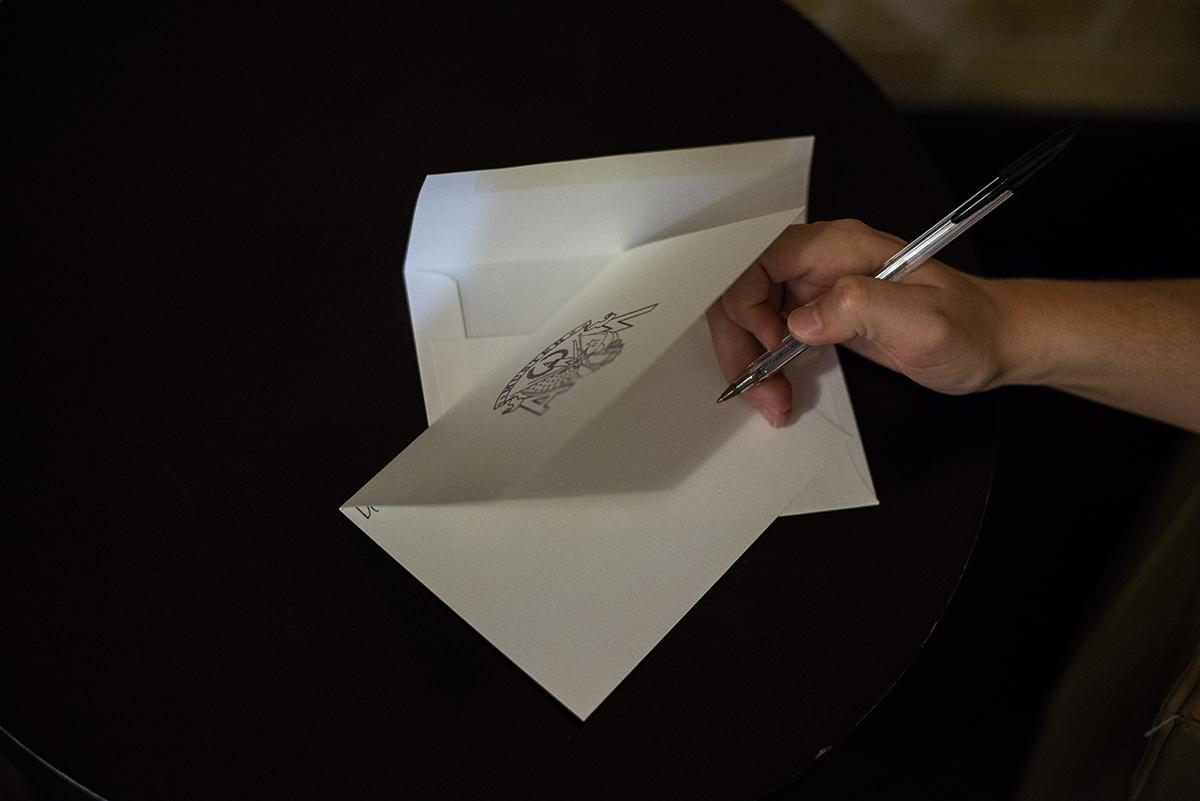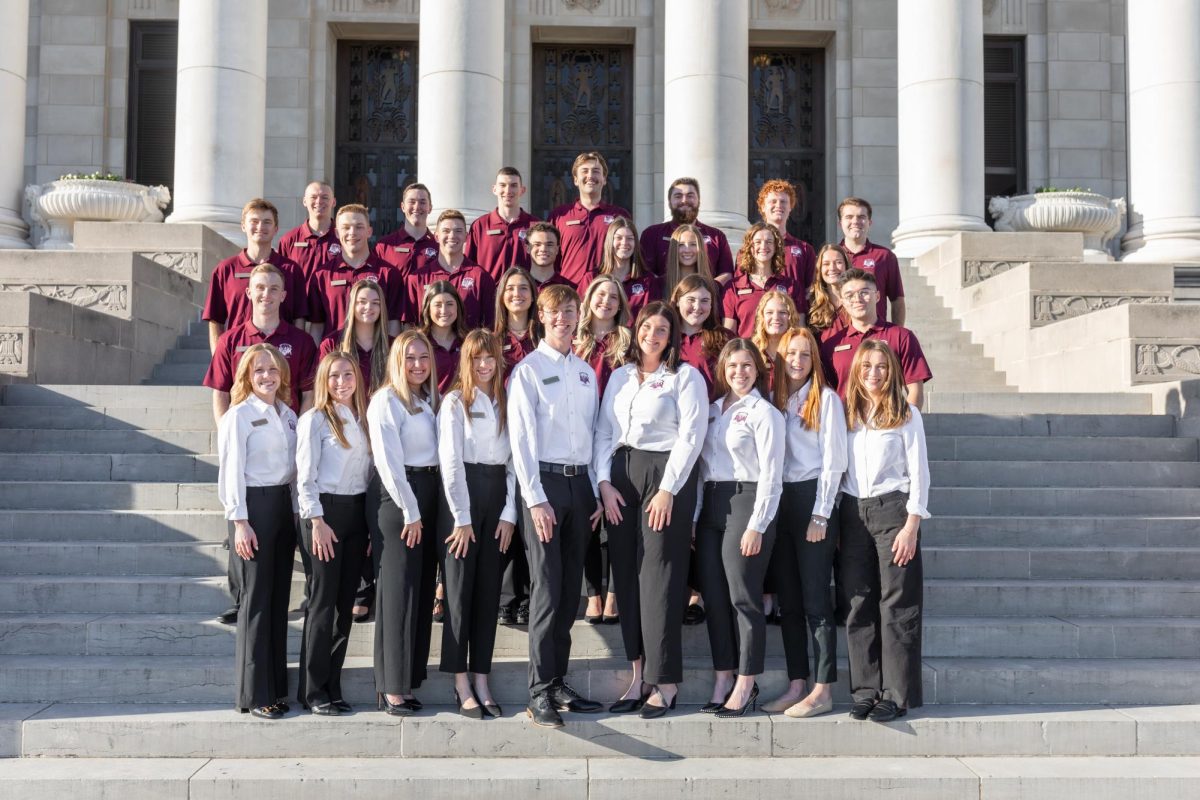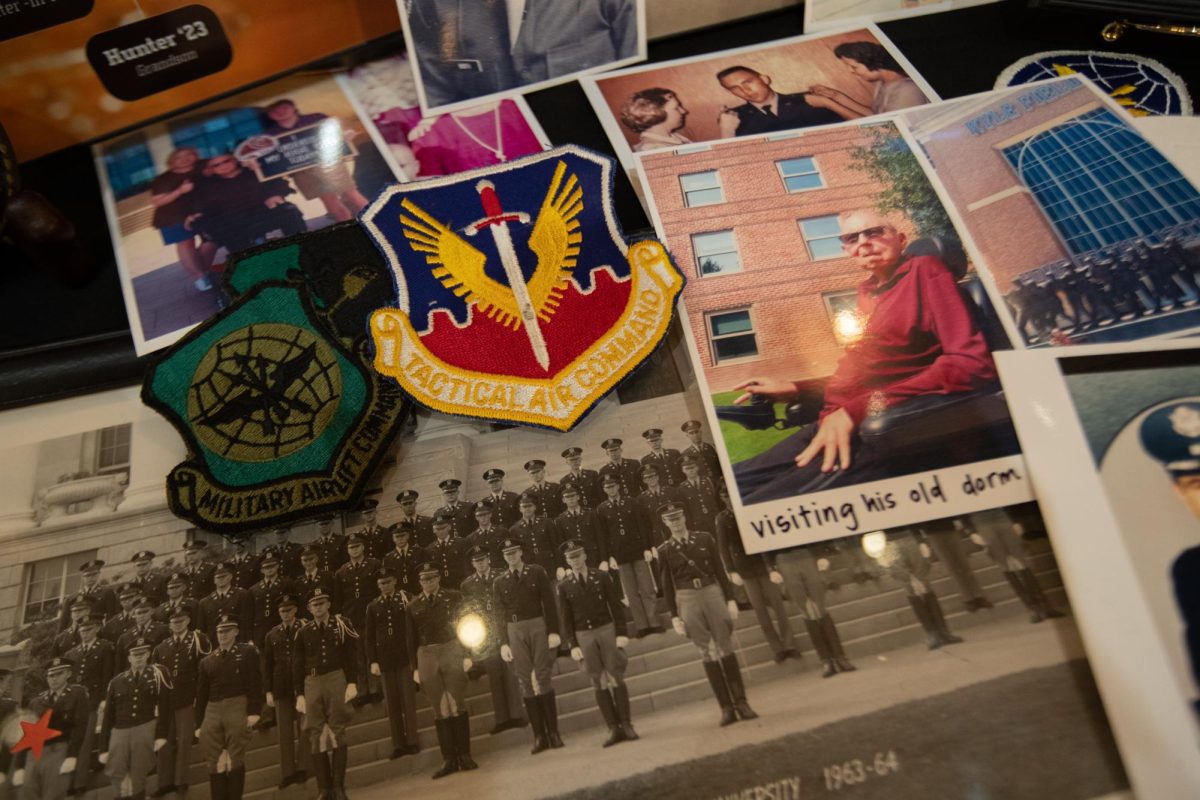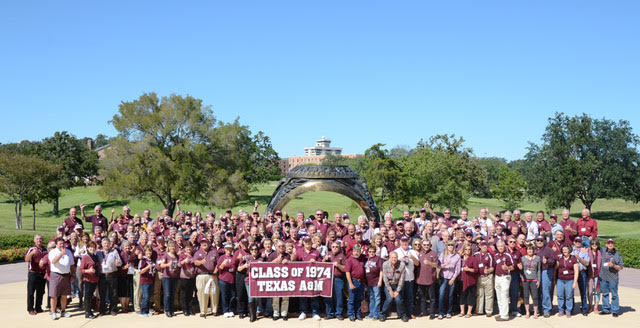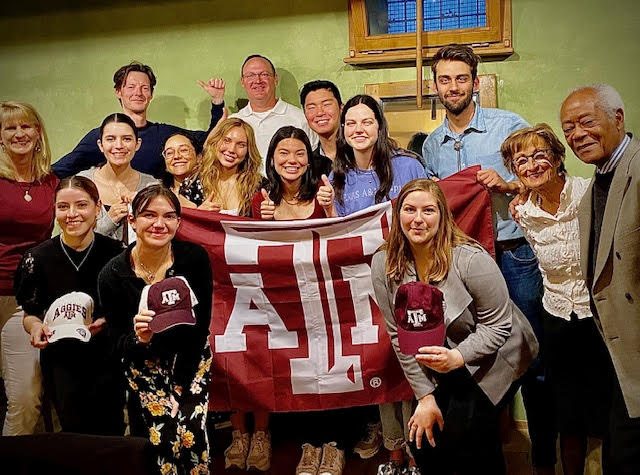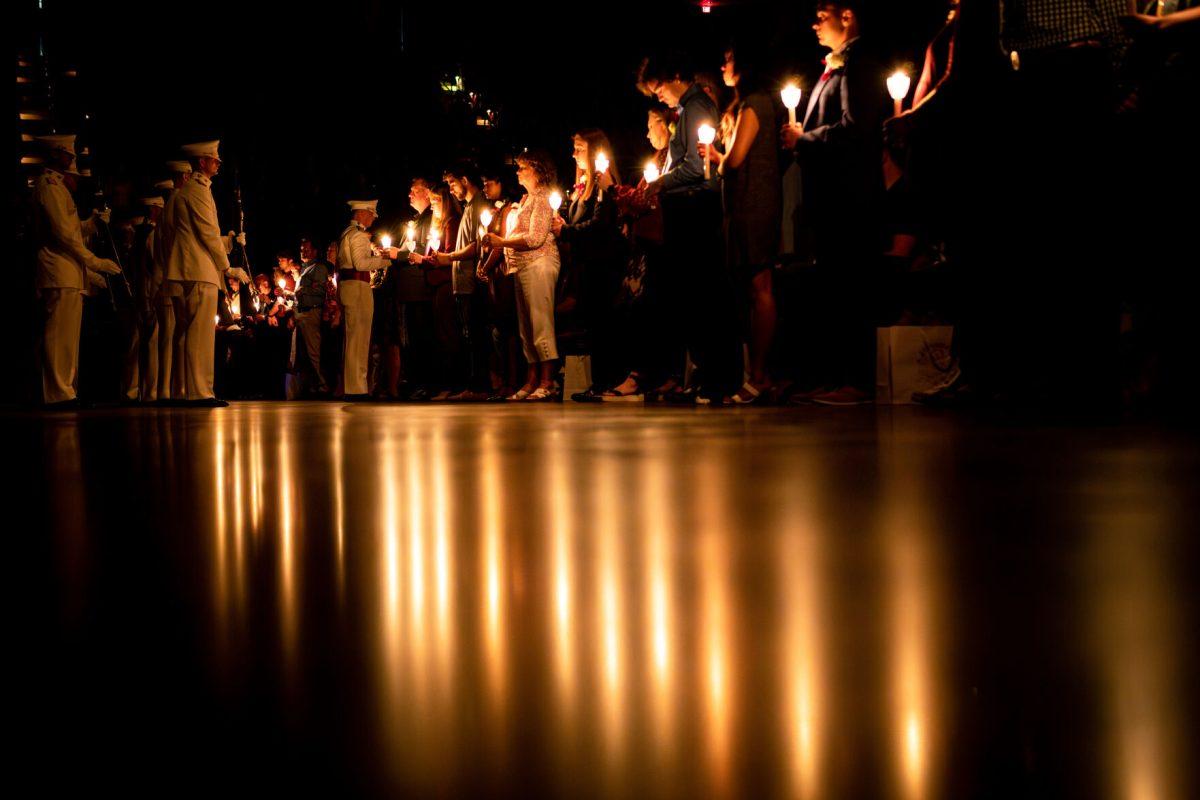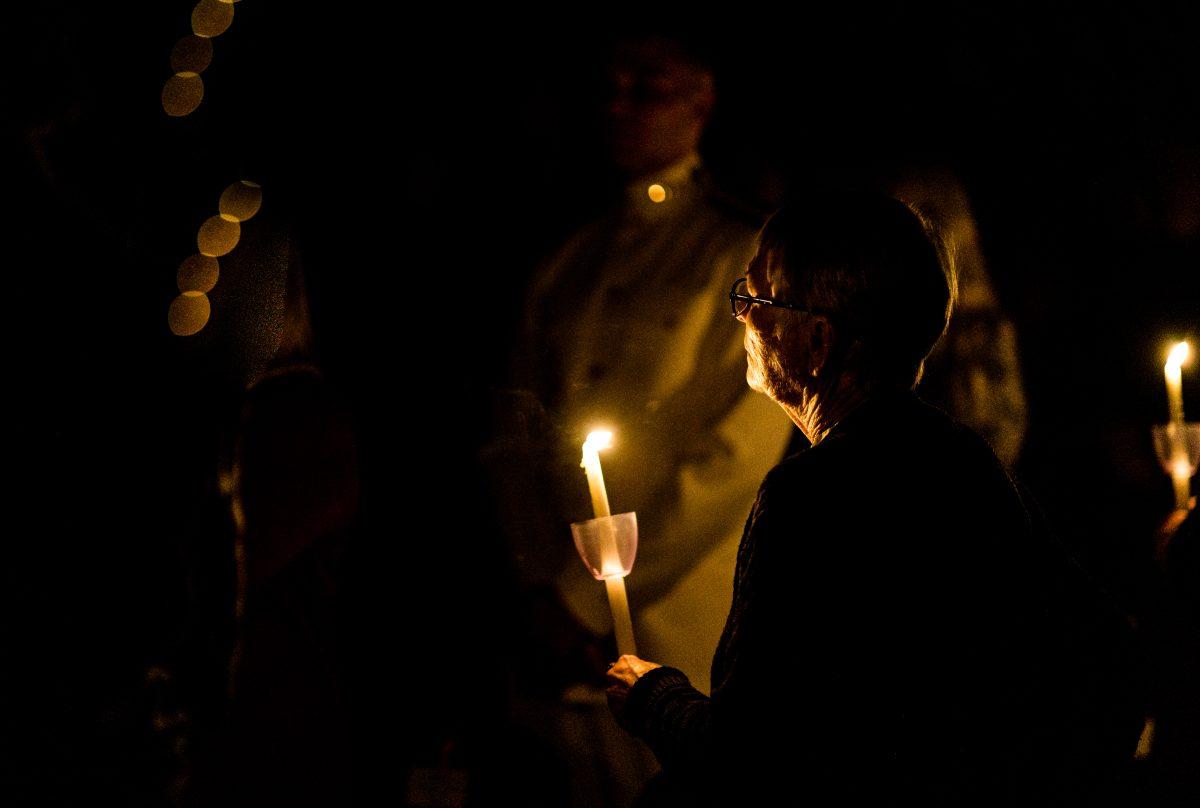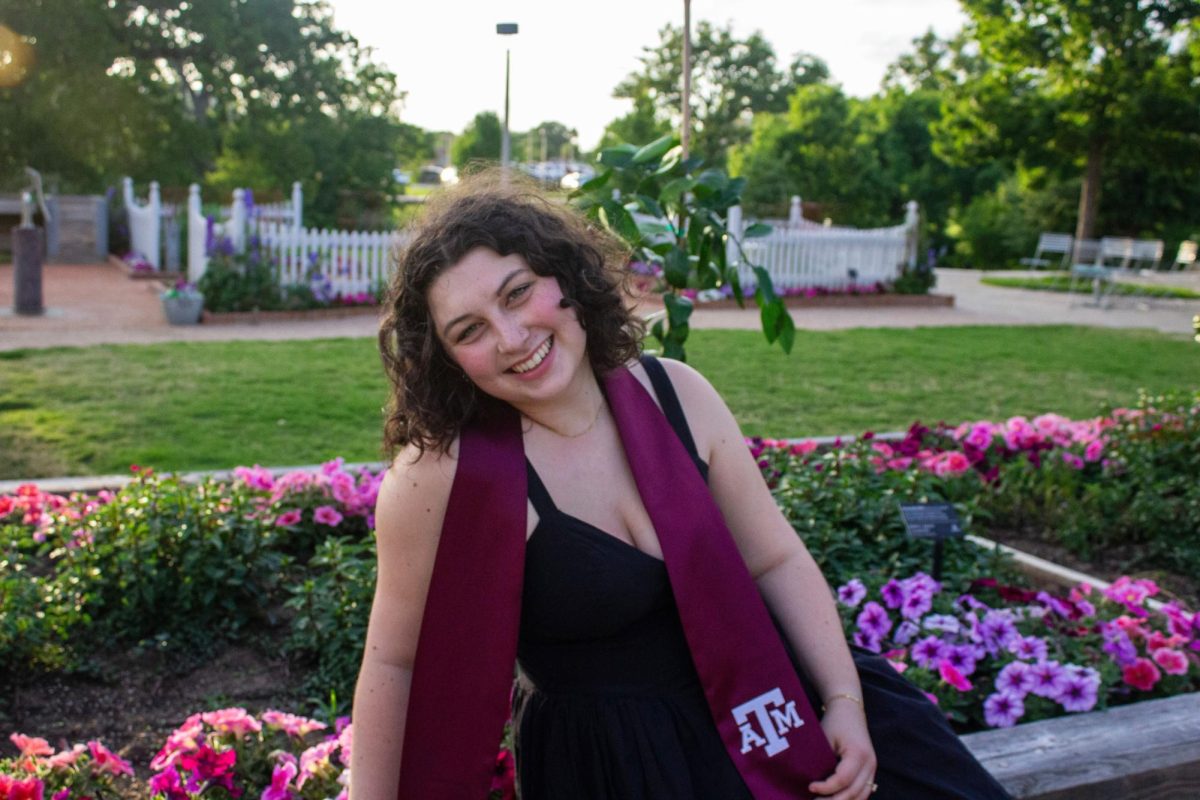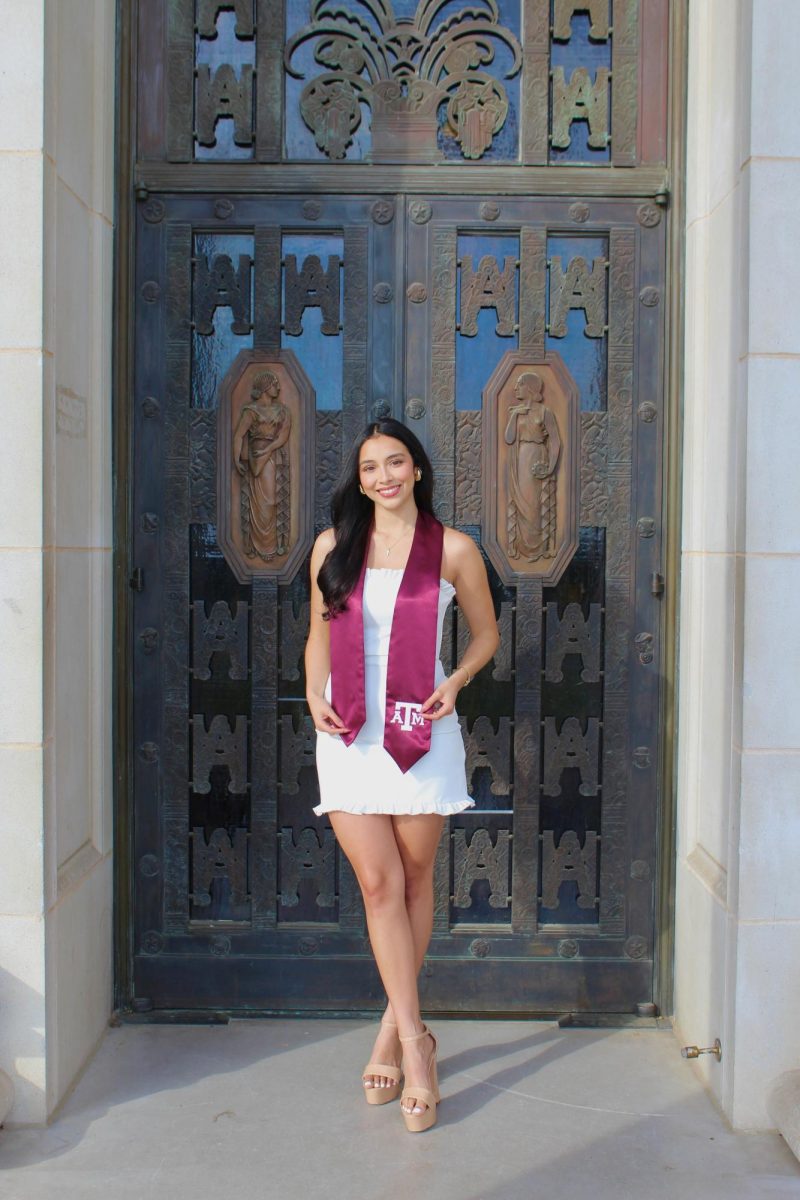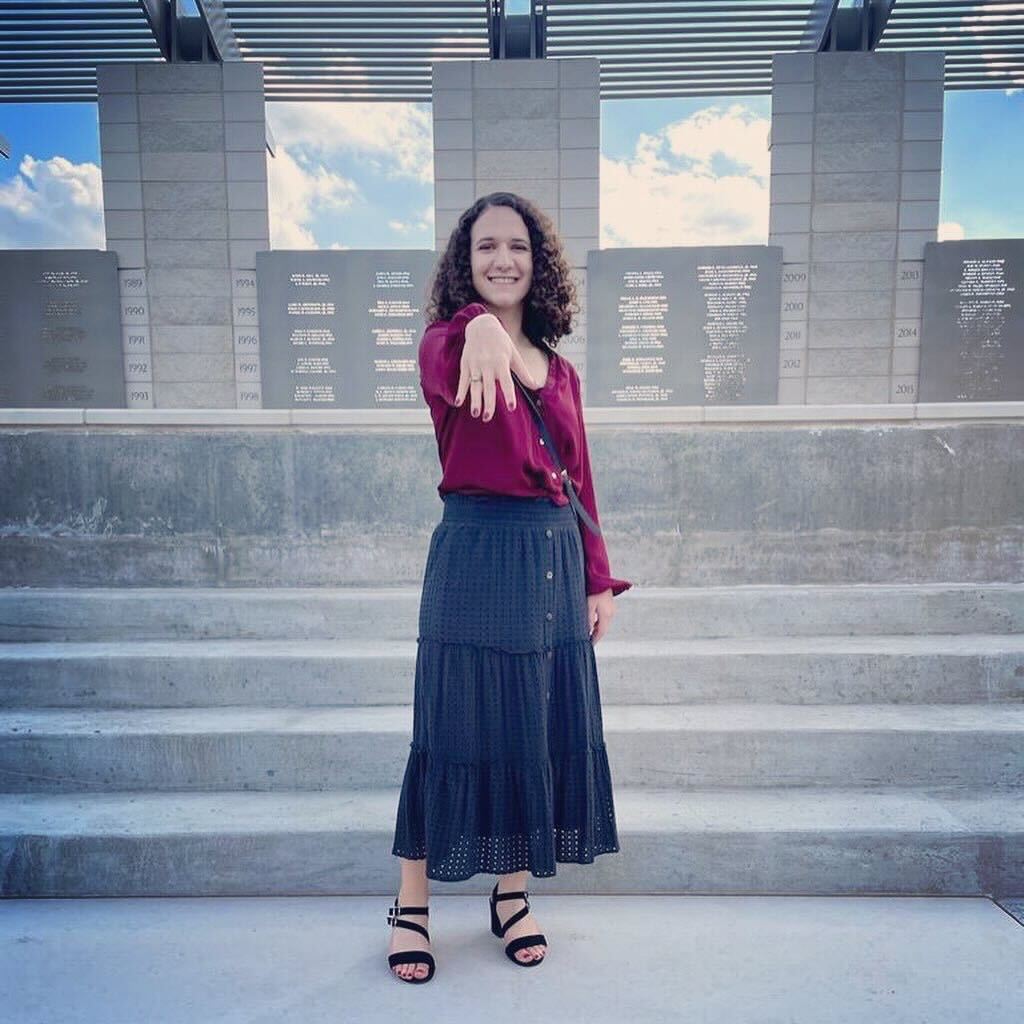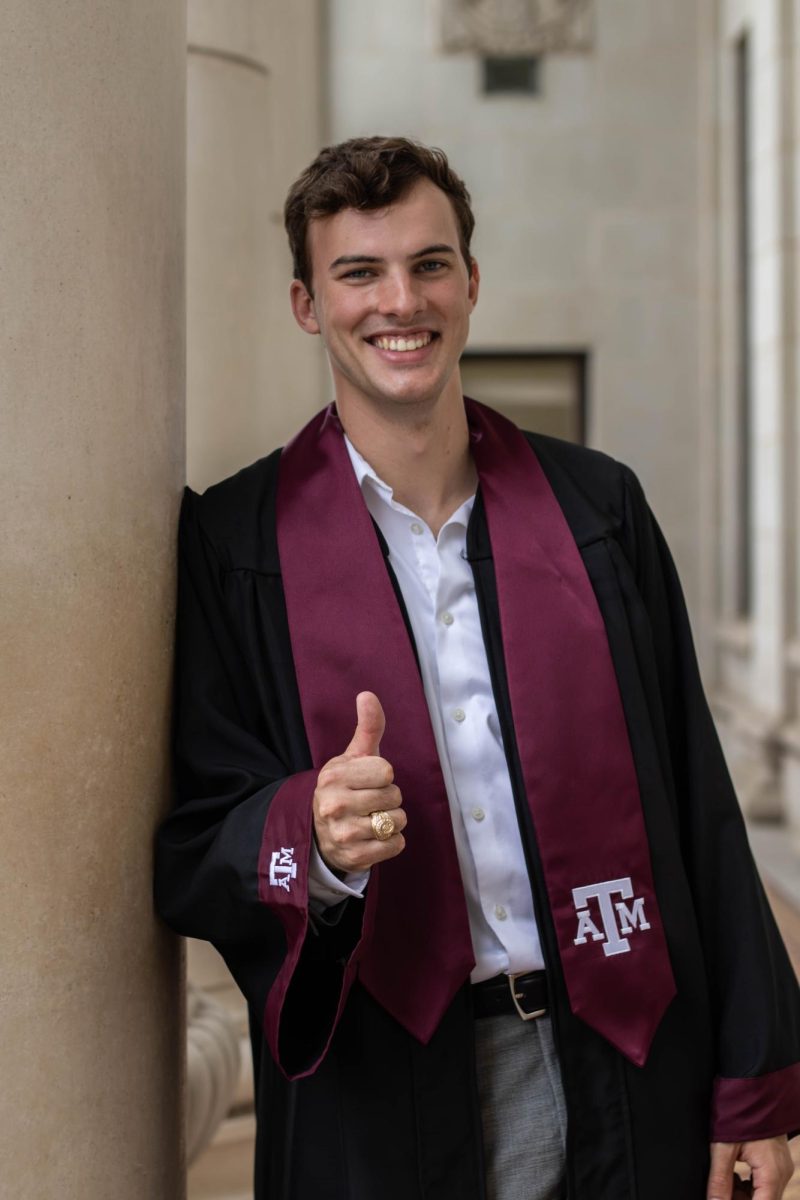Each year, families travel from across the country to attend Aggie Muster to remember their loved ones. For those who meet and assist those families, the Muster hosts, the day becomes a unique experience.
About 120 students are selected in February to act as Muster hosts, spreading awareness about Muster and its symbolism in the days leading up to April 21. Then, on the evening of Muster they meet and speak with the families of those recognized. Thier motivations and backgrounds vary, but they are united by their desire to serve the institution of Aggie Muster.
Cory Rodriguez, Muster host and agricultural economics sophomore, said she grew up in an Aggie family and was always interested in Muster. She said she first attended a Muster ceremony during her senior year of high school, when she knew she would attend Texas A&M. She described her first Muster, and each since, as the closing of another chapter of her Aggie experience.
“For the first time it felt like I wasn’t an outsider looking in, but an insider looking out,” Rodriguez said.
Amy Gray, one of this year’s Muster host coordinators and human resource development junior, said the process of choosing hosts is not easy.
“It varies year to year on what we look for,” Gray said. “For us, it was, ‘Do they get it? Do they get what Muster is about? Do they get that it’s not about them, but it’s about these families that they’re serving?’ Because these families come a long way and it’s an opportunity to love on them and care for them.”
Rodriguez said the coordinators aim to choose hosts that can easily interact with the families and who can maintain an appropriate and professional air, which can be difficult considering the sensitive nature of Muster.
“It’s very intimidating to think that you’ll be hosting a family who has just lost their loved one,” Rodriguez said.
Once the 120 hosts are selected, they are taken through a training process to prepare for the experience. Gray said the training teaches the hosts the mechanics of the day, so that the hosts can better focus on the families when they arrive.
“[The hosts] don’t have to worry about where they’re going, what they have to do next or what’s the next proper procedure,” Gray said. “Hopefully by the time on Tuesday night that they get their family, all of that is just habit or second nature.”
Holly Rine, two-time Muster host and communication junior, said she was surprised to know hosts do not meet families until the evening of the ceremony. The training prepares the hosts to handle their brief time with the families as best as possible.
Alexandra Gonzalez, former Muster host, Traditions Council chairman and agricultural economics senior, said the experience requires a certain level of adaptability.
“It’s a very sensitive and emotionally trying way of serving because it’s kind of luck of the draw,” Gonzalez said. “But regardless, you’re having an impact in some way, shape or form on these families.”
Keller said he witnessed firsthand the variations in families at Muster. His first year, he was in charge of two families, one that was very talkative and knowledgeable of A&M and one that was not and remained quiet at the beginning of the ceremony.
“After the whole ceremony at Reed Arena, I came back and got them to escort them out, and the first family that was very talkative didn’t talk at all, they just gave me a silent hug and I showed them on their way,” Keller said. “The second family was super talkative afterward and were like, ‘Hey, if you ever need a place to stay where we’re at, just give us a call.’ Just going on and on about how that was one of the best experiences they’d ever had in terms of kind of getting over the fact that that person had passed away.”
For Keller, one of the defining moments of his service as a Muster host was an experience with a family to which he was not assigned. He was part of A&M’s Student Government Association, which helped dedicate the Common’s piano to Caleb Tate, Class of 2015. Tate was a university studies major and was Company P-2 sergeant in the Corps of Cadets. He died in October 2013.
Keller said he saw Tate’s family at the piano dedication ceremony and again at Muster that same evening.
“They were just so thankful for that event in the morning, and I remember walking up to them after Muster, going to get my family,” Keller said. “The mom and dad just grabbed me, and the dad just started sobbing uncontrollably and he just kept saying, ‘Thank you.’”
All the hosts are students, which Keller said shows the level of maturity A&M students have to gain that trust from the families and the administration.
“It’s a unique thing that no other school can really comprehend; I think it displays perfectly the spirit we have at Texas A&M, and the kind of family feeling that we have here, and the fact that we do it every year,” Keller said.
For the hosts, their time serving during Muster does not end after they graduate. Keller said he is set to read the Roll Call of the Absent at the hometown Muster he is attending this year. The other hosts, current and former, also expressed interest in remaining involved with Muster, either through attendance or active participation.
“I plan on attending every Muster for the rest of my life,” Gonzalez said. “It’s my duty as an Aggie.”

















